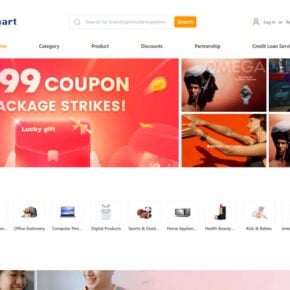Facebook has become a breeding ground for scams and fraudulent activities, with scammers constantly finding new ways to deceive unsuspecting users. One such scam that has been making the rounds on the platform is the fake Avan Motorhome giveaway posts. These posts promise users a chance to win a luxurious motorhome, but in reality, they are nothing more than a ploy to steal personal information or spread malware.

What is the Avan Motorhome Giveaway Scam?
The Avan Motorhome giveaway scam is a type of phishing scam that targets Facebook users. Scammers create fake posts or pages claiming to be affiliated with Avan Motorhomes, a reputable manufacturer of motorhomes. These posts often feature enticing images of luxurious motorhomes and promise users a chance to win one for free.
These fake posts typically ask users to like, share, and comment on the post to enter the giveaway. Some may even require users to fill out a form or click on a link to claim their prize. However, these actions only serve to spread the scam further and potentially compromise the user’s personal information or device.
How Does the Scam Work?
The Avan Motorhome giveaway scam works by exploiting users’ desire to win a valuable prize. Scammers create fake posts or pages that closely resemble the official Avan Motorhomes page, using similar logos, images, and content. These posts often appear in users’ newsfeeds or are shared by their friends, making them seem more legitimate.
When users interact with the fake posts by liking, sharing, or commenting, they inadvertently help the scammers spread the scam to a wider audience. This increases the chances of more people falling victim to the scam.
In some cases, the scammers may also ask users to fill out a form or click on a link to claim their prize. These forms often ask for personal information such as name, address, phone number, and email address. By providing this information, users unknowingly hand over their personal data to the scammers, who can then use it for identity theft or other fraudulent activities.
In other instances, clicking on the link provided in the fake post may lead users to a malicious website or prompt them to download a file. These websites or files can contain malware that can infect the user’s device and compromise their security.
What to Do If You Have Fallen Victim
If you have fallen victim to the Avan Motorhome giveaway scam or any other similar scam on Facebook, it is important to take immediate action to protect yourself and your personal information.
- Report the scam: Report the fake post or page to Facebook by clicking on the three dots in the top right corner of the post and selecting “Report post” or “Report page.” This will help Facebook take action against the scammers and prevent others from falling victim.
- Change your passwords: If you have provided any personal information or clicked on any links, it is crucial to change your passwords immediately. This includes your Facebook password as well as passwords for any other accounts that may have been compromised.
- Scan your device for malware: Run a scan with Malwarebytes Free or any other reputable antivirus software to check for any malware or viruses that may have been installed on your device.
- Monitor your accounts: Keep a close eye on your bank accounts, credit cards, and other financial accounts for any suspicious activity. If you notice any unauthorized transactions, contact your bank or financial institution immediately.
- Be cautious of future scams: Learn from your experience and be more vigilant when it comes to online scams. Be skeptical of any too-good-to-be-true offers and always verify the legitimacy of a giveaway or promotion before participating.
Technical Details and Statistics
The Avan Motorhome giveaway scam is just one example of the many scams that plague social media platforms like Facebook. These scams often rely on social engineering techniques to trick users into taking actions that benefit the scammers.
According to a report by the Better Business Bureau, Facebook scams accounted for over $117 million in losses in 2022 alone. This highlights the scale of the problem and the need for users to be cautious and informed.
Scammers often use various tactics to make their scams appear more legitimate, such as creating fake websites, using official logos and branding, and leveraging popular brands or products. They also exploit users’ emotions and desires, offering them the chance to win valuable prizes or get exclusive deals.
It is important to note that legitimate giveaways and promotions are typically hosted on official websites or social media pages of the respective brands. Always verify the authenticity of a giveaway before participating, especially if it seems too good to be true.
Summary
The Avan Motorhome giveaway scam on Facebook is a deceptive scheme that preys on users’ desire to win valuable prizes. Scammers create fake posts or pages that mimic the official Avan Motorhomes page, tricking users into liking, sharing, and commenting on the posts. These actions help the scammers spread the scam further and potentially compromise users’ personal information or devices.
If you have fallen victim to the scam, it is important to report the fake post or page, change your passwords, scan your device for malware, monitor your accounts for suspicious activity, and be cautious of future scams. By taking these steps, you can protect yourself and minimize the potential damage caused by falling victim to such scams.
Remember to always be skeptical of online giveaways and promotions, especially if they seem too good to be true. Verify the authenticity of the giveaway before participating and stay informed about the latest scams and frauds circulating on social media platforms.




